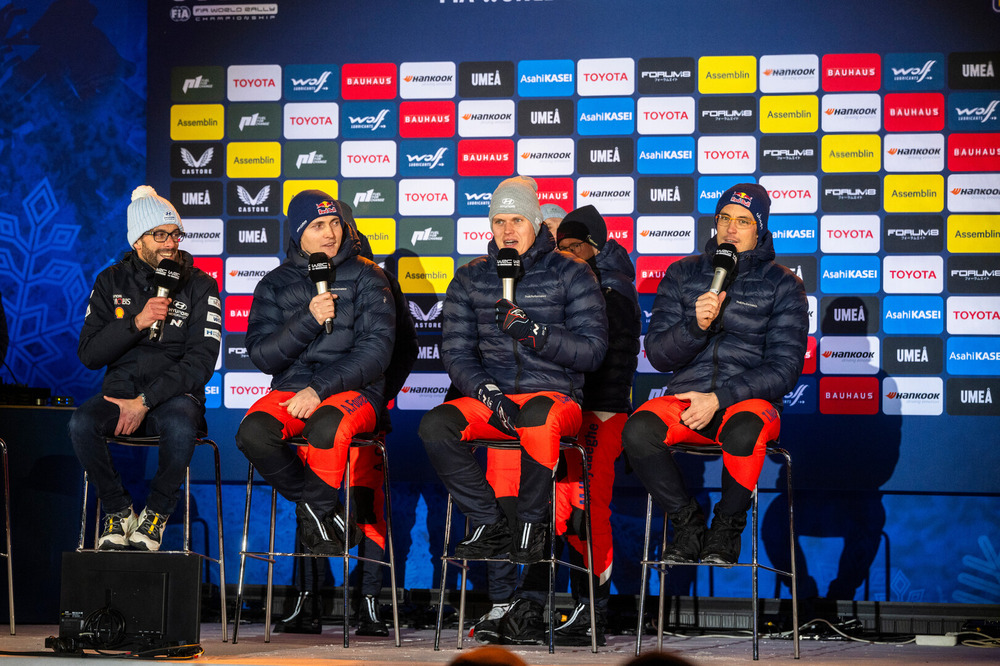The World Rally Championship is poised for a major overhaul of WRC points system starting in the 2025 season, following widespread criticism of the current structure.
The changes, approved by the FIA World Motor Sport Council during a meeting in Rwanda, aim to simplify the scoring process and enhance the competitive spirit of the championship.
This decision comes after a year of mixed reactions to the WRC points system introduced in 2024, which many felt complicated the rewarding of rally victories. The sport adopted a new points structure designed to create excitement on what was termed “Super Sunday.”
This format allowed drivers to earn provisional points based on their standings at the end of Saturday’s stages, with a sliding scale awarding up to 18 points for the leader, however, these points were only secured if the driver completed the rally on Sunday.
This led to scenarios where a driver could win the rally but still leave with fewer points than rivals who finished behind them. Such outcomes sparked frustration among drivers and fans alike, leading to calls for a reassessment of how points are awarded.
The revised WRC points system for 2025 season will revert to a more traditional format, reminiscent of previous seasons from 2010 to 2023.
Under this new structure, the top ten finishers will earn points on a scale of 25-17-15-12-10-8-6-4-2-1, ensuring that the overall rally winner receives the maximum points available.
Additionally, bonus points will still be awarded for performance on Sunday; however, this has been adjusted to reward only the top five fastest drivers rather than seven as in 2024. The “Power Stage,” which has remained a fan favorite since its inception, will continue to offer additional points for the fastest crews.
The maximum possible score for a driver and co-driver over a weekend will now be 35 points—five more than in 2024—if they secure victory and excel in both Super Sunday and Power Stage performances.
The WRC points system changes are designed to ensure that winning a rally translates directly into earning the most championship points, thereby restoring value to rally victories that some felt were diminished under the previous system.
Confirming the decision, the FIA said: “The revised format brings simplification by removing Saturday points, reduces the chances of a rally winner scoring fewer points than the second-placed competitor, and continue to enhance Sunday’s excitement and competitiveness.
“The “Super Sunday” format will maintain its role as a critical competition day, while the Power Stage remains a key element for broadcasters and fans alike.”
The decision to eliminate Saturday’s provisional points reflects an understanding of driver frustrations voiced throughout the season. Notably, eight-time world champion Sébastien Ogier was vocal about his discontent with how victories were being devalued under the previous WRC points system.
He likened it to children’s games where everyone receives points merely for participation rather than merit. Such sentiments have resonated widely across the paddock, prompting discussions that led to this pivotal change.
In addition to revising the 2025 season WRC points system, discussions during the meetings also approved future technical regulations set for implementation in 2027. These regulations aim to address cost concerns associated with Rally1 cars, which have escalated significantly in recent years.
The FIA plans to introduce a cost cap of €345,000 for these vehicles in an effort to make participation more accessible for teams and manufacturers. This initiative is part of a broader strategy to sustain interest in rallying and encourage new entrants into the sport.
As we look forward to the 2025 season, which kicks off with the Monte Carlo Rally in January and concludes with Rally Saudi Arabia in November, there is palpable excitement about how these changes will influence competition dynamics.





